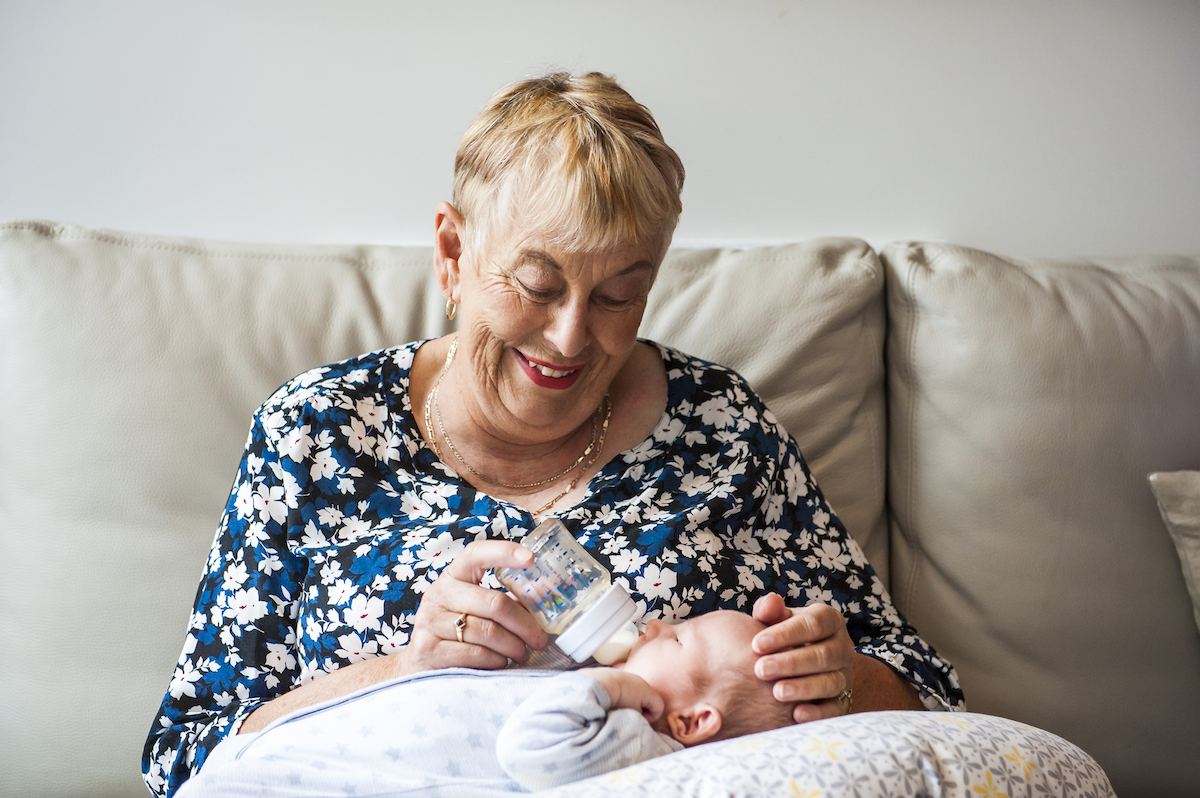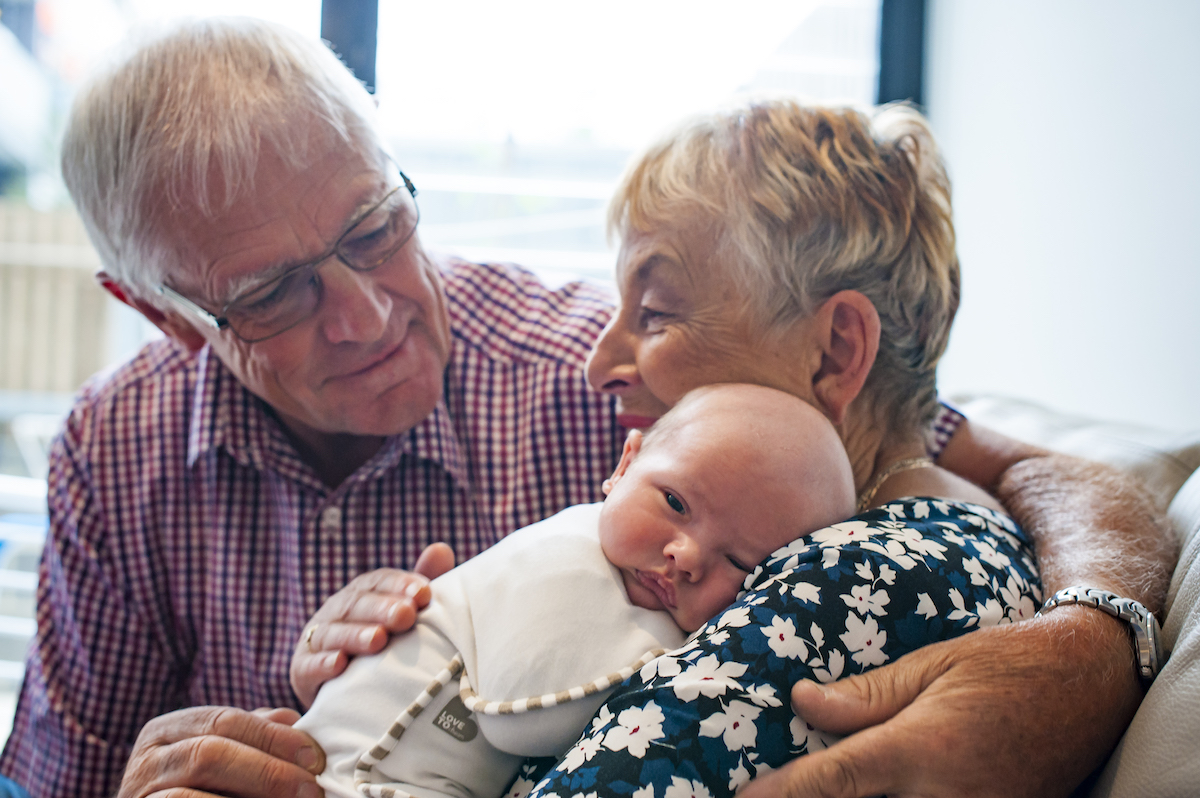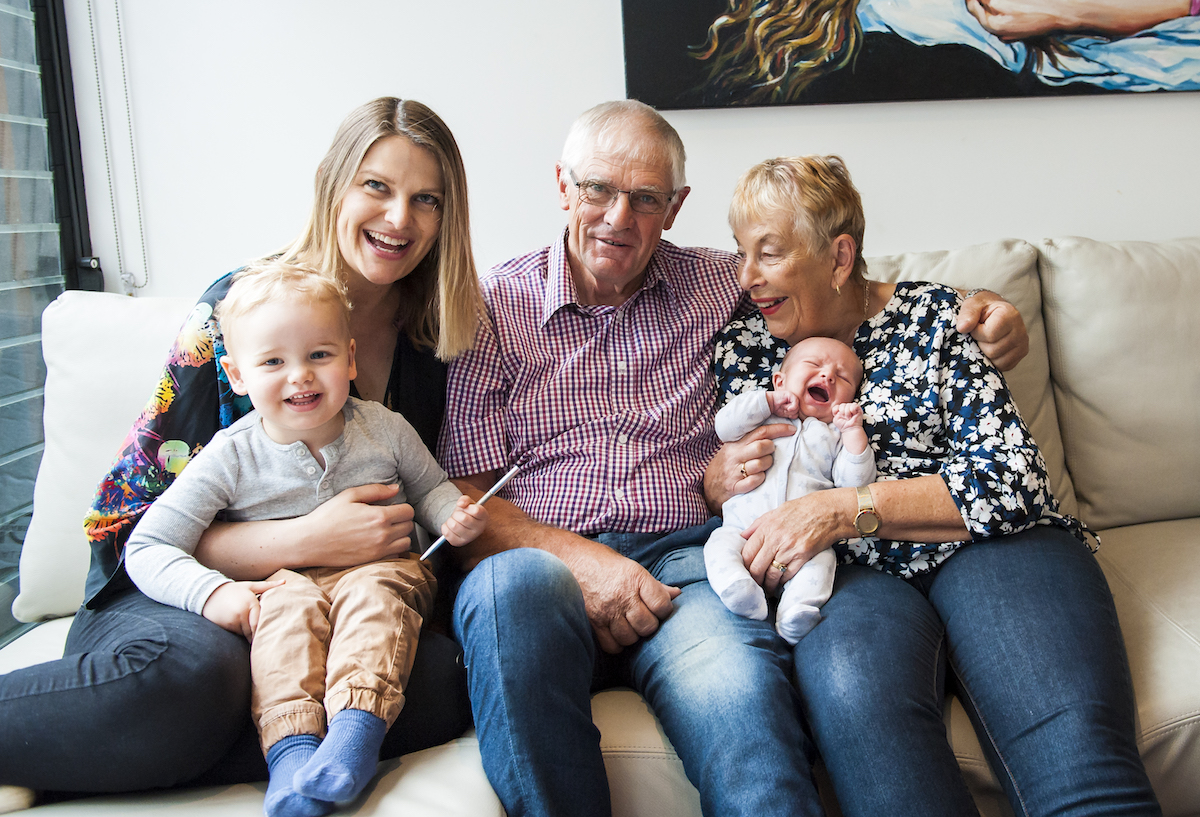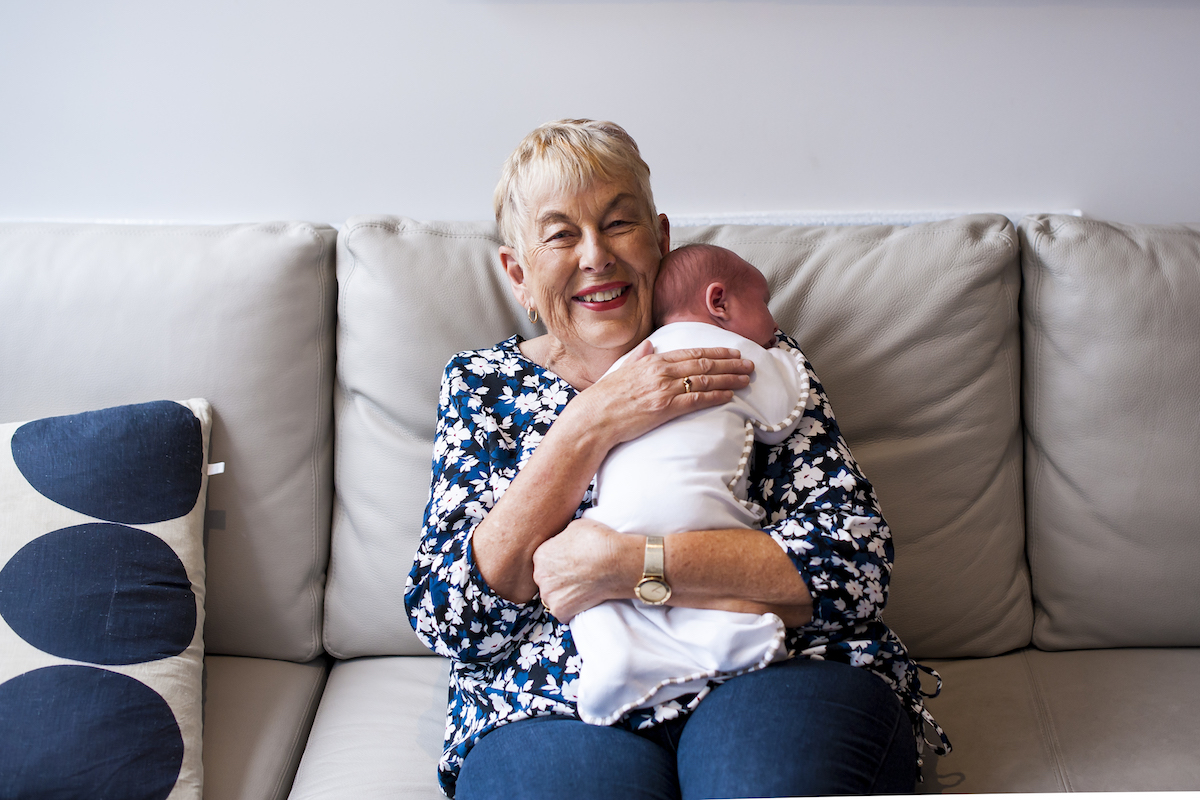To celebrate Mother’s Day, we sat down with our very own Kate Pollard and her gorgeous mum, Nola, to chat about the generational differences in the way women can choose to lead their lives.
Nola is hands down one of many extraordinary women who pioneered the working mum juggle in Australia in the ‘60s and ‘70s—a time when girls rarely had the opportunity to establish a serious career, let alone get the type of education we now take for granted. But a combination of intelligence, courage and determination helped Nola forge a fulfilling career in education, alongside her hectic life running a farm in rural Victoria and being the loving mum of two.
Nola
Nola, tell us a little bit about your career journey.
My career has been focused on secondary education, particularly in languages. I grew up in Melbourne, and did an arts degree and Diploma of Education at Melbourne Uni in the 1960s. I was appointed to the country where, after the initial culture shock, I married a farmer and settled on the land. We have two children (now very grown up!) and four grandchildren. I continued teaching in many and varied roles including as a deputy principal. To keep my brain cells active when the children were small, I did further study to complete a post-grad librarianship course and worked for a time as a teacher librarian.
You’ve always studied or worked however this was relatively uncommon for women when you were growing up and starting your career. Can you tell us about what it was like for women back then and the tradeoffs they were expected to make?
Growing up, I went to a fairly typical large suburban high school. Until Form 5 (Year 11) there were equal numbers of boys and girls, but at the end of that year most of the girls had left to work in banks, shops or clerical jobs. In my Form 6 (Year 12) there were 50 of us: 40 boys, but only 10 girls. That shows you the odds against a girl having an education or a serious career. As well, university fees were really expensive, so the only hope for most of us was to get a scholarship. I was lucky enough to win a ‘Commonwealth Scholarship’ which paid the fees but with no living allowance. I also won a teaching studentship which paid the fees and a quite generous living allowance. Because I wanted to be independent of my parents, I happily accepted the teaching studentship. The downside of the studentship was that you were ‘bonded’ to the Education Department for three years and had to agree to be posted anywhere in Victoria. The only way you could get out of your ‘bond’ was to get married after one year. We all moaned about these restrictions, but in retrospect it was quite an enlightened scheme which enabled a new generation of girls (and future mothers) to get a university education.
After you graduated, pay was not equal—I think about 75% of the male rate—until the 1970s. Women had superannuation but this disappeared if you got married. You could then join what was called a Married Women’s Pension Fund, but this was such a miserable scheme that hardly anyone bothered. To get this into perspective, there was actually a ‘marriage bar’ for female teachers until 1956 and in the Commonwealth Public Service until 1966. It seems hard to believe, but getting married meant you actually had to resign from your job!

You are now the proud mother of two children and grandmother of four grandchildren. What was it like working when you had two young children?
I don’t think it has ever been easy! I think my generation was actually a transitional one. In the previous generation, the norm was the stay-at-home mum while the current generation is achieving a much more seamless combination of motherhood and career. My generation of women was among the first to demand the right to a career but we had to pay for it with lashings of guilt.
For the first time we could ‘have it all’ but there was enormous pressure to be perfect at everything. It wasn’t enough to be good at your job: you couldn’t be seen to have a badly behaved child, an untidy house or empty biscuit tins.
How were society’s expectations different to today for working women?
Attitudes were certainly very traditional though perhaps just beginning to be challenged. It was very much the patriarchal model: man as ‘provider and decider’ with a woman’s ‘proper’ place as ‘homemaker’: cooking, cleaning, sewing, ironing the socks and sheets! Education for girls was often thought of as a ‘waste of time’ as they ‘only got married’. A job just filled the gap before marriage so that, for a girl, a ‘career’ was often a totally alien concept. Rural areas were perhaps even more conservative—no matter how brilliant your career, if you couldn’t make a feather light sponge or a perfect pavlova you were pretty much at the bottom of the heap. I was once given a book 100 Ways to Cook a Sheep by a kind neighbour who obviously hoped to improve my domestic skills. I doubt that I got past No.5!
How did you practically manage the juggle?
It was touch and go at times. As we lived on a farm, the juggle was complicated by farm chores. There were always animals to feed, hay to put out, farm bookkeeping to finish. There was, of course, the added complication of distance from town which made travelling to pick up and drop off kids or getting to music and swimming lessons very time consuming. Then there were the usual expectations to help in the school canteen, listen to reading at school, help at working bees or cook for the school fete. Luckily, despite being very busy, my husband was very supportive. He was a pioneer male ‘fruit and milk mum’ at the kinder and, in the farm ute with dogs in tow, willingly shared after-school pick-ups.
At times I did manage the load by opting to work part-time, and I did lower my career expectations by moving ‘sideways’ into areas of lesser responsibility. I do regret this now but at the time it was a matter of survival!

What’s your advice to women who are trying to manage their career and having a family?
- Share the load and don’t be too proud to ask for help. Talk to your partner.
- Prioritise and work out what’s important. Ask yourself: Is it going to matter in five year’ time?
- Don’t expect too much of yourself. You don’t have to be perfect.
- Plan ahead to help you stay in control and ahead of the curve.
What’s your hope for the next generation of women as they enter the workforce?
I have so much admiration and respect for the current generation of women. I hope the next generation will continue to be as brave, as determined and successful.
Kate
Kate, what was it like growing up? What are your memories of your mum working and your family life?
Growing up on a dairy farm was an incredible experience. I loved being with the animals and helping out on the farm. There was always so much to do outside so we were always super active and had a lot of unstructured time to climb trees, build forts or ride motor bikes. It’s a great experience and I have so many happy memories from my childhood.
Mum always worked and I think this was really important for her that she had something ‘for herself’. As an adult I’ve grown to appreciate this a lot more. Living on the farm in rural Victoria can be pretty isolating and challenging if you haven’t grown up there.

You are a very driven person with an incredible work ethic. Where has this come from and who is your role model?
Both my parents have always worked and I can’t remember a time when I wasn’t expected to contribute to the household. Even at a young age I fed and raised calves. In primary school I would willingly get up at 4:30AM to help Dad get the cows in for milking. I’d then help him for a while before heading back home to get ready for school. After school I was straight back over helping Dad again. I’d also often help out by getting dinner started. It was just part of life that everyone in the family needed to pull their weight.
I think that growing up on a farm builds a strong work ethic, personal resilience and a greater empathy for people who are going through challenging times. Life on a farm can be tough at times with droughts, rising costs and a constant drive to become more efficient.
Mum and Dad have both worked incredibly hard and are such amazing role models on so many levels. Despite all the ups and downs of life, they have had an amazing partnership and have been married for 52 years!
How would you describe your mum in three words?
Courageous, generous, intelligent.
What are you most proud of about your mum?
What Mum didn’t mention in her story is that she’s an incredible writer and aspired to be a journalist growing up. She was the dux of her final year at school but in those days, she wasn’t allowed to go to university and pursue her dreams. In fact, it was extremely rare that a girl would even finish school, let alone be the dux. With no support from her parents, she accepted a teaching studentship so that she could continue her education and have a career. She was a bit of a trailblazer for her generation.
After completing her degree, she was posted out into the country. Moving to the country back in the ‘60s after going to uni in Melbourne (and having real coffee) was like stepping back into the dark ages. She was living on a farm with generator power and a toilet out the back of the house. There were no nice European influenced comforts that she’d become accustomed to in Melbourne. The shock and isolation must have taken a lot of courage and resilience to adapt to a new way of life.
Despite this she embraced the differences and forged out a great and meaningful career in the country. If it wasn’t for her working, my brother and I wouldn’t have had the opportunity to have travelled overseas for family holidays or to go to a private secondary school. It was often Mum’s salary that afforded us these amazing opportunities to grow and experience life outside the small rural area where we grew up.
I’m most proud of the fact that Mum pursued a career against all of the odds. She’s an amazing role model and she made many personal sacrifices along the way for which I will always be grateful.







